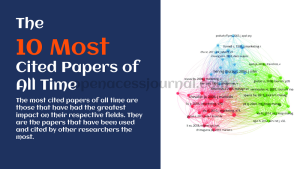
UGC-Cloned Journals List 2023
Cloned journals are fraudulent or fake scientific journals that mimic legitimate scholarly journals in order to deceive researchers into submitting their manuscripts and paying fees for publishing. These cloned journals often use names, logos, and websites similar to those of well-established journals, making it difficult for researchers to distinguish between legitimate and fake ones.
The purpose of cloned journals is usually to make money by charging authors high fees for publication without providing proper peer review or editorial services. This can lead to the dissemination of false, misleading, or poorly researched scientific information. Therefore, it is important for researchers to be aware of these fraudulent journals and carefully evaluate any journals they are considering submitting their work to.
How do you identify cloned journals?
Identifying cloned journals can be challenging, but there are a few things that researchers can do to help spot these fraudulent publications:
- Check the journal’s website: Look for spelling and grammatical errors, inconsistent formatting, or any other signs of unprofessionalism. Also, be wary of journals with a website design that looks very similar to that of another legitimate journal.
- Check the journal’s indexing: Check if the journal is indexed in reputable academic databases such as Scopus, Web of Science, or PubMed. If the journal is not indexed or if it is indexed in a suspicious or unknown database, it may be a sign of a cloned journal.
- Look for information on the editorial board: Reputable journals typically have a clearly listed editorial board with contact information for the editors. Check if the editors are experts in their fields and if their affiliations are legitimate.
- Evaluate the peer-review process: Be wary of journals that do not have a transparent peer-review process or those that guarantee acceptance of papers. Reputable journals typically have a rigorous peer-review process that involves subject-matter experts reviewing papers for accuracy, relevance, and quality.
- Be cautious of unsolicited emails: If you receive an unsolicited email inviting you to submit your paper to a journal that you are not familiar with, be cautious. Reputable journals typically do not send unsolicited emails to solicit papers.
What are UGC-cloned journals?
UGC-cloned journals are fraudulent or fake academic journals that mimic the names, logos, and ISSN numbers of legitimate academic journals included in the University Grants Commission (UGC) list of approved journals.
The UGC is a statutory body in India that provides recognition to universities and colleges and promotes academic excellence. In 2017, the UGC published a list of approved journals in various disciplines to help researchers identify credible journals for their publications. However, some fraudulent publishers have cloned the names and ISSN numbers of the approved journals to deceive researchers into submitting their work and paying fees for publication.
These cloned journals do not provide rigorous peer review and editorial services and publish low-quality research, leading to the dissemination of false or misleading information. Therefore, researchers should carefully evaluate the legitimacy of a journal before submitting their work for publication, especially if the journal claims to be included in the UGC-approved list.
MDPI New Scopus-Indexed Journals
UGC Cloned Journals List
Thank you for reading our content “UGC Cloned Journals List“, If you enjoyed this article and would like to stay up-to-date with the latest news, insights, and resources from our team, we invite you to subscribe to our newsletter.
By subscribing to our newsletter, you will receive regular updates delivered straight to your inbox. This includes exclusive content, expert analysis, and industry insights that you won’t find anywhere else.
Our newsletter is the perfect way to stay informed and stay ahead of the curve. Whether you’re a business owner, marketer, or just interested in the latest news and trends, our newsletter has something for everyone.
So don’t miss out! Subscribe today and start receiving the latest news, insights, and resources from our team.







Glad to know about cloned journals after losing 90000INR.